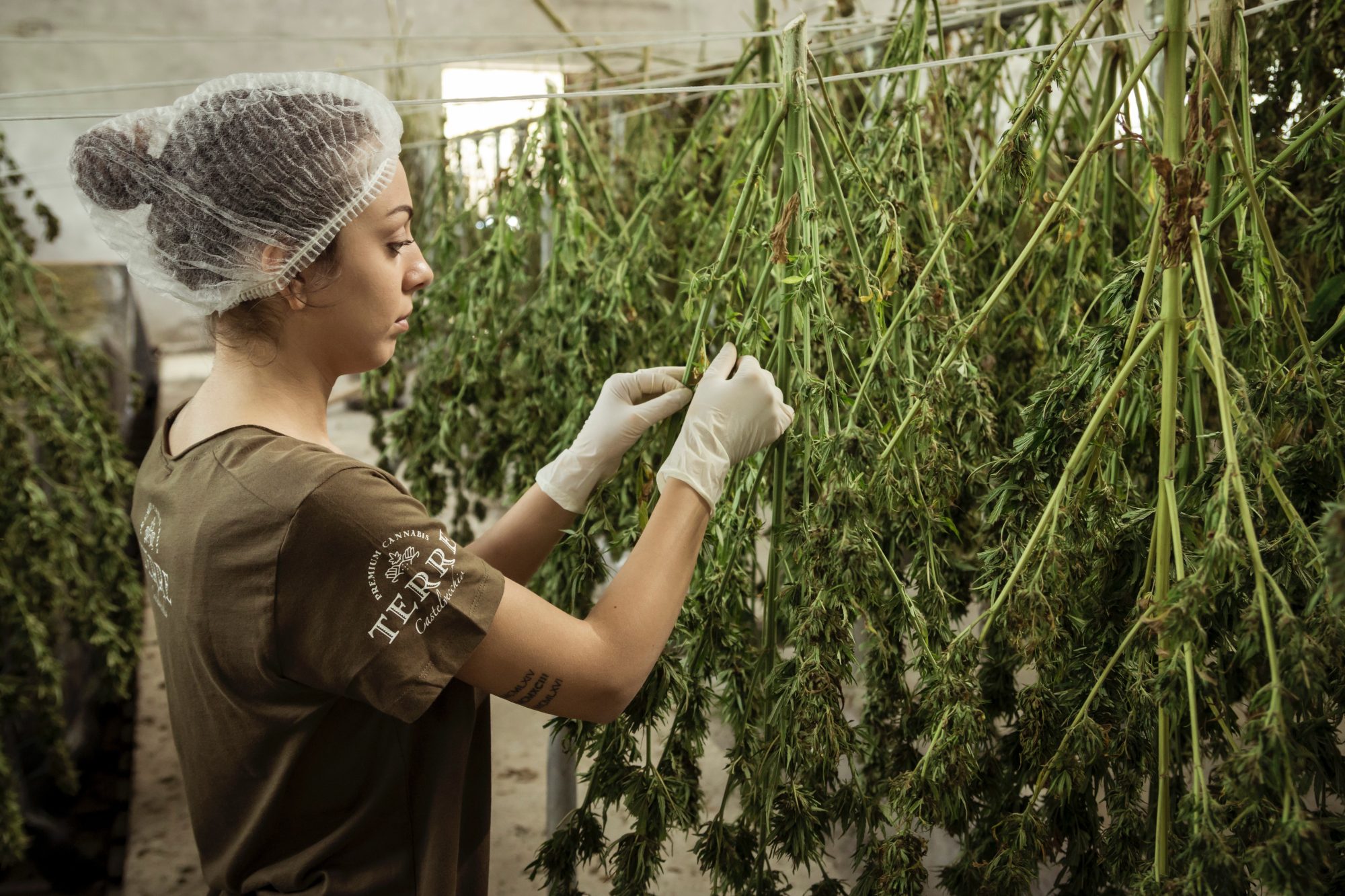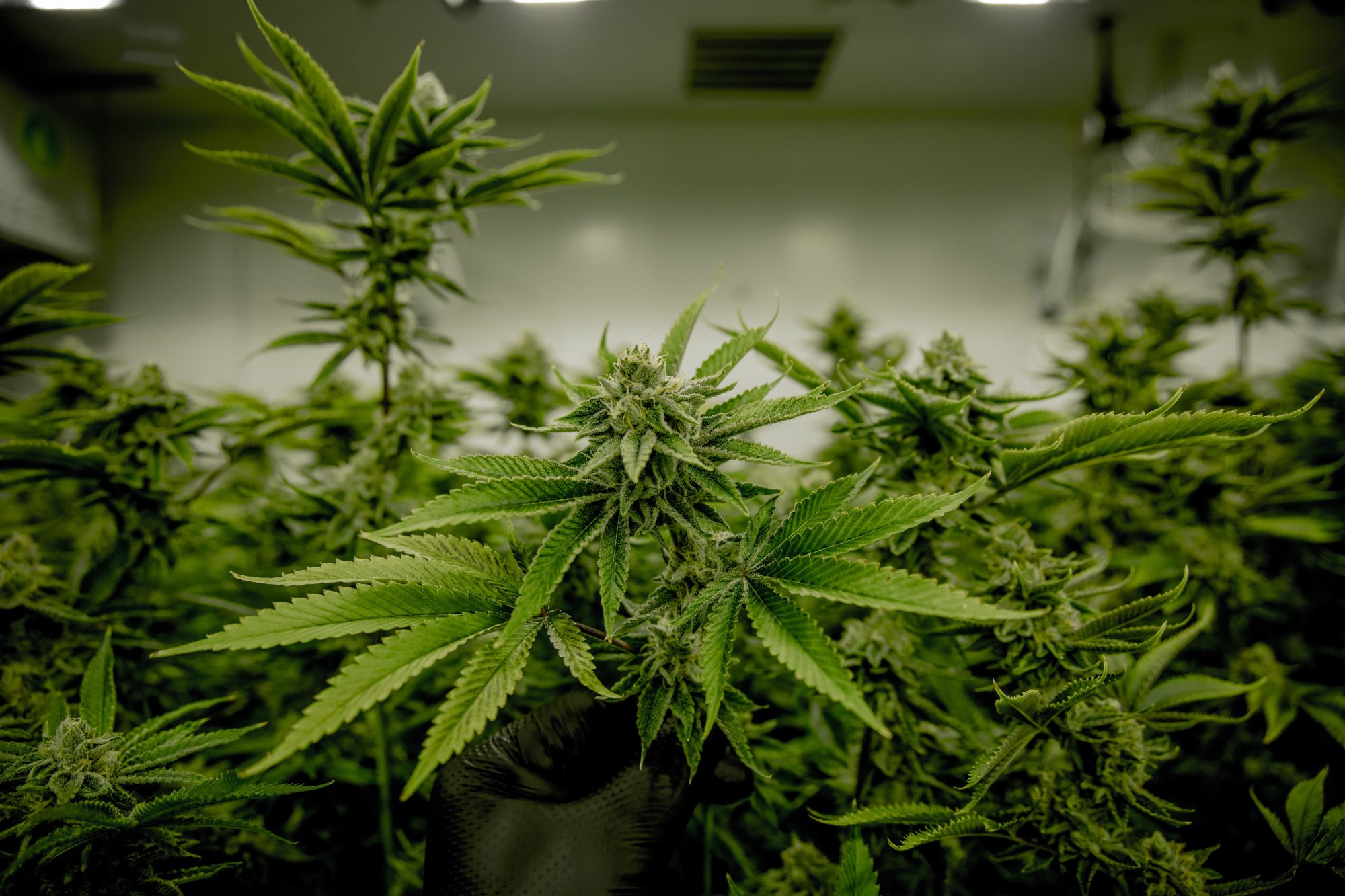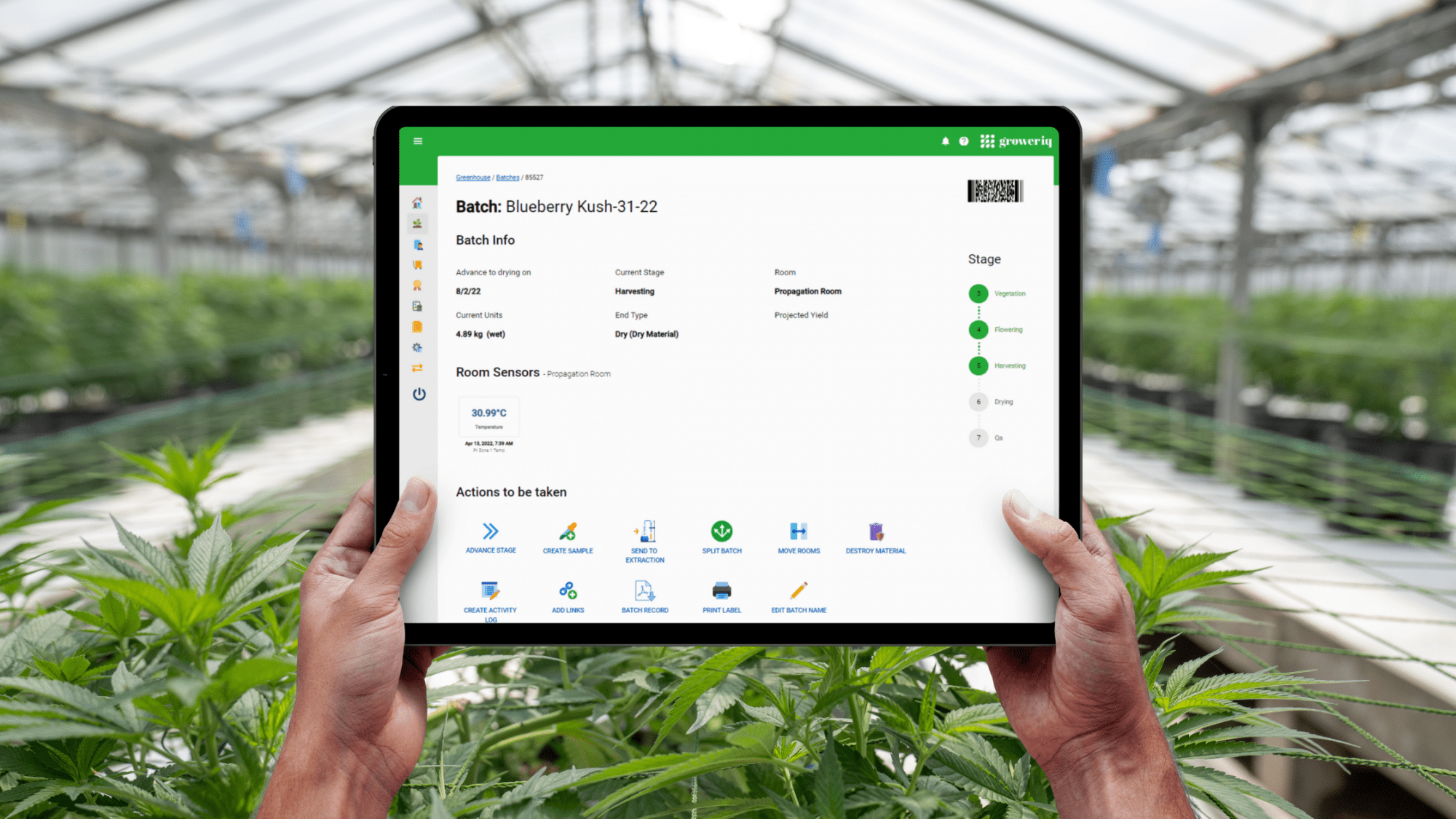Learn 7 best practices for success in licensing, quality control, and security measures.
As the industry matures, governments around the world are tightening their grip on cannabis businesses, demanding strict adherence to rules and regulations. That’s where Cannabis Compliance comes in. In this blog, we’ll explore essential topics such as licensing, quality control, security measures, and more, ensuring that you have the knowledge and tools necessary to navigate this dynamic landscape successfully. Join us on this compliance journey as we explore best practices, share insights, and provide guidance on developing a robust Cultivation Operations Plan that meets and exceeds regulatory requirements.
What is Cannabis Compliance?
When it comes to the cannabis industry, compliance is a critical aspect that cultivators, manufacturers, and retailers must navigate at every stage of the product’s lifecycle. From cultivation to manufacturing to retail, each sector faces unique compliance requirements and regulations. We will explore how cannabis compliance changes at each stage and the key considerations for businesses operating in this industry.

1. Cultivation Compliance: Cultivating a Foundation for Success
The first stage of cannabis compliance begins with cultivation. Cultivators must secure the appropriate licenses and permits to operate legally. This involves understanding local regulations, filling out applications, and meeting specific criteria set by regulatory bodies. By adhering to these requirements, cultivators can lay a strong foundation for successful operations.
Ensuring Quality and Safety
Once licensed, cultivators must employ good production practices to ensure product quality and safety. This includes implementing detailed standard operating procedures (SOPs) for cultivation, harvesting, and processing. Cultivators must also establish a robust sanitation program to prevent contamination and ensure compliance with health and safety regulations.
Compliance Through Documentation
To stay compliant, cultivators must track and document all plants and batches. This includes recording information such as plant genetics, growth stages, and harvest yields. Accurate record-keeping is essential for reporting purposes and facilitates traceability in the event of a recall.
Pest Control Compliance
Cultivators must comply with local pest control product use obligations. This involves using authorized pest control products safely and responsibly to minimize the risk of contamination or harm to consumers. By staying vigilant and proactive in pest management, cultivators can ensure compliance and maintain the integrity of their products.
2. Manufacturing Compliance: Crafting Quality and Safety
For cannabis manufacturers, compliance requirements shift as they handle and process cannabis. Obtaining the appropriate licenses for manufacturing is the first step towards compliance. This involves understanding the regulations specific to the jurisdiction and product category in which the manufacturer operates.
Accurate Labeling and Branding Compliance
Packaging and labeling requirements are paramount in the manufacturing stage. Manufacturers must ensure that all cannabis products are accurately labeled, including essential information such as contents, expiry dates, and warnings. Compliance with branding regulations is also crucial to maintain consistency and transparency in the marketplace.
Preventative Control Plans
Manufacturers of cannabis extracts and edible cannabis must develop and implement preventative control plans. These plans outline procedures for identifying and mitigating potential hazards, ensuring product safety throughout the manufacturing process. By following these plans, manufacturers can minimize the risk of contamination and ensure compliance with health and safety regulations.
Collaborative Compliance
Manufacturers must rely on the information disclosed by cannabis cultivators. This information is vital for compliance with reporting requirements, such as reporting the source and quality of the cannabis used in production. By maintaining strong relationships with cultivators and ensuring accurate information exchange, manufacturers can meet regulatory obligations and maintain compliance.
3. Retail Compliance: Creating a Safe and Informed Shopping Experience
The final stage of the cannabis compliance journey is retail. Retailers must acquire the necessary licenses and authorizations to operate legally. This involves working closely with local government bodies and meeting specific requirements, such as obtaining a retail operator license.
Employee Training for Informed Customer Service
In addition to licensing, retailers must ensure that their employees receive proper training. In Ontario, for example, all cannabis retail store employees must successfully complete an AGCO-approved cannabis retail employee training program. This ensures that employees have the knowledge and skills to provide a safe and informed shopping experience for customers.
Accurate Labeling for Consumer Trust
Compliance in retail also extends to packaging and labeling requirements. Retailers must ensure that all products are accurately labeled with the necessary information, including contents, warnings, and expiry dates. By adhering to these regulations, retailers can maintain consumer trust and confidence in their offerings.
Transparent Operations
Retailers must have systems in place to track and report sales and inventory. This includes submitting periodic reports to regulatory bodies as required. By diligently tracking sales and inventory, retailers can ensure compliance with reporting requirements and contribute to the overall transparency of the cannabis industry.
Why is Compliance Important in the Cannabis Industry?
In order to fully understand why compliance is necessary and important for the cannabis industry, we must first recognize the impact that regulations and compliance measures have had on other industries, such as alcohol.

Establishing Order and Responsibility
Regulations surrounding alcohol have long been in place to help reduce the risks and harms associated with its consumption. These regulations aim to prevent irresponsible usage, ensure proper manufacturing processes, and minimize potential damage to society and individuals caused by excessive or inappropriate alcohol consumption.
Guardianship of Public Health
Similarly, compliance laws within the cannabis industry are designed to ensure that the broader society is not negatively impacted by the effects of cannabis consumption. These regulations are put in place to protect public health, safety, and well-being.
One example of such regulations is the Cannabis Act in Canada, which has three main goals:
1. To keep cannabis out of the hands of youth
2. To keep profits out of the pockets of criminals
3. To protect public health and safety by allowing adults access to legal cannabis.
By implementing compliance measures, such as strict age restrictions and licensing requirements, the Cannabis Act aims to prevent underage consumption, reduce illegal sales and distribution, and ensure that cannabis products meet acceptable quality and safety standards.
Safeguarding Youth, Curtailing Crime, and Ensuring Quality
Another example is the California Marijuana Control, Regulation, and Education Act, which establishes a comprehensive system to legalize, control, and regulate the cultivation, processing, manufacture, distribution, testing, and sale of nonmedical marijuana for use by adults 21 years and older. California aims to create a safe and well-regulated cannabis market while generating tax revenues that can be used to enforce compliance measures and support broader societal needs.
California’s Comprehensive Approach
Compliance in the cannabis industry is not only necessary for the well-being of society, but it also provides numerous benefits.
1. Consumer Safety First
It helps establish a legitimate and regulated market for cannabis products, ensuring that consumers have access to safe and reliable products. Compliance measures such as product testing and labeling requirements help consumers make informed decisions and avoid potentially harmful or mislabeled products.
2. Taxation and Transformation
Compliance laws allow governments to tax cannabis products, generating revenue that can be used to enforce regulations and promote safe consumption. These funds can be used to educate the public about responsible cannabis use, support addiction treatment programs, and invest in other important societal initiatives.
3. Turning the Tide
Compliance measures can help reduce the influence of the black market by making legal cannabis more accessible and attractive to consumers. By ensuring that legal cannabis products are of high quality and meet safety standards, compliant businesses can effectively compete with illicit sellers, ultimately reducing the profits of criminal organizations.
Related Reading
- Marijuana Grow System
- Cannabis Climate Control
- When To Transplant Cannabis
- Perpetual Harvest
- Cannabis Industry Statistics 2024
- Cannabis Grow Room
- Cannabis Mother Plant
- Cannabis Grow Problems
- Propagating Cannabis
- Cultivation Operations Plan
Pro-Tip for Cannabis Compliance Managers
Maintaining compliance is crucial for the success and longevity of businesses. Cannabis compliance managers play a pivotal role in ensuring that all regulations and requirements are met throughout the cultivation process. To effectively manage compliance, these professionals need to utilize seed to sale software, which enables them to maintain accurate records and streamline operations from start to finish.

Did you know? GrowerIQ has an industry-leading Seed-to-Sale Cannabis Software (with quality management built in) that is designed to uncomplicate cannabis production for cannabis producers throughout the world.
Related Reading
- Cannabis Enterprise Resource Planning
- Indoor Grow Room Supplies List
- Marijuana Growing Equipment
- Cannabis Product Development
- Cannabis Cloning
- How To Clean Grow Tent
- Cannabis Erp Selection
- Sensors For Cannabis Growers
- Cannabis Grow Equipment
- Cannabis Erp Adoption
- Cannabis Ipm
- Cannabis Remote Monitoring
- Cannabis Grow Tracking
- Cannabis Growing Systems
- Cannabis Grow Log
What are Common Cannabis Compliance Requirements?
Medical cannabis regulation has become a significant focus for countries worldwide. Despite the international drug control treaties in force, signatory nations have the discretion to allow the use of cannabis for medical and scientific purposes within their territories. This flexibility is outlined by the European Monitoring Centre for Drugs and Drug Addiction (EMCDDA), the World Health Organization (WHO), and the United Nations Office on Drugs and Crime (UNODC).

Government Agencies and the Oversight of Medical Cannabis Supply Chains
To ensure the safe and controlled use of medical cannabis, stringent control measures are required. One crucial aspect is the establishment of government agencies responsible for controlling the medical cannabis supply chain. These agencies are required to report to the International Narcotics Control Board (INCB). In addition, national cannabis agencies have the exclusive right to maintain stocks of harvested plant material and are responsible for its distribution on a wholesale scale.
The dispensing of cannabis-based products should only occur with a prescription and under medical supervision. This ensures that the products are used based on evidence of their safety, effectiveness, and quality.
Differentiating Product Types and Access
When examining various regulatory models for medical cannabis, it becomes apparent that the type of cannabis products available for patients and the access mechanisms to these products can differ significantly.
Divergent Paths
There are two primary classifications for cannabis-based medicinal products: those that have undergone a regular marketing authorization process for medicines and those that have gone through more simplified authorization processes or were exempted from specific regulatory authorizations.
Safeguards and Standards
For products that have undergone the regular marketing authorization process, extensive non-clinical and clinical studies are required to prove their safety and efficacy. These products must also comply with Good Manufacturing Practices (GMP), ensuring proper quality assurance.
On the other hand, products that have been exempted from specific regulatory authorizations or have undergone simplified processes may not guarantee the same level of safety and efficacy. This distinction highlights the importance of regulatory frameworks in ensuring patients have access to high-quality and reliable products.
Regulating Cultivation and Supply
Cultivation and supply regulations are crucial aspects of cannabis laws and regulations. Four key aspects differentiate regulatory models in this domain:
1. Cannabis cultivation
Different models allow cannabis cultivation to varying extents. Some countries restrict cultivation to obtaining active pharmaceutical ingredients (APIs) for the pharmaceutical industry, while others allow cultivation of herbal medical cannabis for patient use.
2. Domestic supply
The extent of domestic supply varies across different countries. Pharmaceutical preparations can either be imported or manufactured domestically. In the case of domestic manufacturing, there may be a distinction regarding whether the API is imported or not.
3. Production licensing
The responsibility for cannabis cultivation and manufacturing activities can either be centralized with government agencies or delegated to licensed private companies. This decision impacts the control and oversight of the production process.
4. Distribution mechanisms
Distribution mechanisms can be centralized or decentralized, depending on the regulatory model. Centralized distribution ensures greater control and monitoring of the supply chain.
Technical Requirements: Ensuring Quality and Safety
Technical requirements play a significant role in regulating cannabis-based products. The specific criteria related to production, quality control, safety/efficacy assessment, labeling, and packaging depend on the product categories and the regulatory framework in place.
Stringent Standards for Registered Cannabis Medicines
For cannabis-based medicines that have undergone a regular marketing authorization process, the technical criteria are well-defined within the medicine regulatory system. These products must adhere to strict guidelines and standards.
Diverse Technical Requirements
In contrast, unregistered cannabis products may have varying technical requirements based on the regulatory framework. Some models require that unregistered products follow GMP requirements and undergo rigorous quality control to ensure batch-to-batch consistency. Other non-industrialized products, such as officinal and magistral preparations, may lack appropriate quality control and standardization.
7 Best Practices to Ensure Cannabis Compliance with Laws & Regulations
Compliance is a critical aspect that requires constant attention and adaptation. Rules and regulations surrounding cannabis cultivation and operations vary from jurisdiction to jurisdiction, and staying up-to-date with the latest compliance requirements is essential for success in this industry.

1. Creating a Good Internal Control Environment
To ensure cannabis compliance, it is crucial to establish a strong internal control environment. This starts with creating written policies that outline the organization’s commitment to compliance. These policies should be easily accessible to all employees and serve as a guide for training and daily operations. By clearly assigning responsibility and ownership of compliance-related tasks, a culture of compliance can be fostered within the organization.
2. Implementing a Robust Risk Assessment Process
A comprehensive risk assessment process is essential for identifying potential compliance issues before they escalate into major problems. This involves conducting regular internal reviews to identify and address areas of risk. By proactively identifying and mitigating risks, organizations can minimize the chances of non-compliance and ensure a smooth operation.
3. Implementing Control Activities
Documenting procedures and implementing control activities is crucial for maintaining cannabis compliance. These written procedures provide a framework for training employees and ensure that operations are carried out in accordance with regulations. Control activities can include processes for inventory management, quality control, security measures, and record-keeping. By documenting and following these activities, organizations can demonstrate their commitment to compliance.
4. Proper Management of Information and Communications
Open and documented lines of communication are vital for effective cannabis compliance. Regular communication with employees and management helps to maintain awareness of compliance initiatives, challenges, and successes. Periodic reports should be provided to management to keep them informed of the organization’s compliance efforts. This ensures that compliance is a priority and promotes a culture of transparency and accountability.
5. Ongoing Training and Assessments
Compliance training should be an ongoing process for employees at all levels of the organization. Initial training should cover the basics of cannabis compliance, while regular assessments and refresher training keep employees informed of any changes in regulations. By investing in training and assessments, organizations can ensure that their workforce is well-informed and equipped to comply with the latest requirements.
6. Implementing Assurance Practices
Regular internal auditing is crucial for identifying compliance issues before they become significant problems. By conducting recurring audits, organizations can document compliant operations and promptly address any deviations from regulations. This process helps to maintain compliance and allows for continuous improvement. Management should regularly assess the effectiveness of compliance programs and use feedback to drive improvements and address emerging challenges.
7. Setting up Proper Systems
To streamline compliance operations, organizations should invest in appropriate systems and software. These systems can automate tasks such as inventory tracking, record-keeping, and reporting, reducing the time and effort required for compliance management. By leveraging technology, employees can focus more on building the business and less on maintaining compliance.
How GrowerIQ Helps Cannabis Businesses Maintain Compliance
Maintaining cannabis compliance is simplified with GrowerIQ’s comprehensive software, which consolidates compliance, cultivation, manufacturing, quality management system, and customer relationship management (CRM) functionalities. This integrated platform enables operators to track products seamlessly through each cultivation stage, ensuring effective compliance management and streamlined regulatory reporting.

1. Compliance Management
GrowerIQ’s software is equipped with robust compliance management features that ensure adherence to the ever-changing regulations and requirements in the cannabis industry. The software includes built-in compliance templates and workflows that simplify the process of creating and managing compliance documentation.
2. Cultivation Management
The cultivation module of GrowerIQ’s software allows cannabis operators to track and manage the growth of their plants from seed to harvest. It includes features such as strain tracking, batch management, and environmental monitoring. This module provides real-time insights into plant health, growth patterns, and resource utilization, helping cultivators optimize their processes and maximize yields.
3. Manufacturing Management
For cannabis operators involved in the manufacturing process, GrowerIQ’s software offers a comprehensive manufacturing management module. This module allows operators to track the transformation of raw materials into finished products, ensuring compliance with product formulation and labeling requirements. It also provides visibility into production schedules, inventory management, and quality control processes.
4. Quality Management System
Ensuring product quality and consistency is of utmost importance in the cannabis industry. GrowerIQ’s software includes a robust quality management system that enables operators to create and enforce quality control processes. From conducting inspections and audits to managing non-conformances and corrective actions, this module helps operators maintain the highest standards of quality and compliance.
5. Customer Relationship Management (CRM)
GrowerIQ’s software goes beyond compliance and cultivation management. It also includes a CRM module that allows operators to manage customer relationships effectively. This module enables operators to track and analyze customer interactions, manage sales leads, and provide exceptional customer service. By integrating CRM functionality into the software, GrowerIQ helps operators build strong customer relationships and drive business growth.
Related Reading
- Cannabis Tracking System
- Cannabis Accounting Software
- Cannabis Erp
- Cannabis Cultivator Software
- Cannabis Tracking Software
Discover how GrowerIQ’s seed-to-sale software can help you set up all of the administrative components of a successful cannabis cultivation operation, without any hassle. Questions we haven’t covered? Please reach out and let us know. GrowerIQ serves clients coast to coast, and we’re ready to help your team today.
Streamline Cannabis CultivationAbout GrowerIQ
GrowerIQ is changing the way producers use software - transforming a regulatory requirement into a robust platform to learn, analyze, and improve performance.
To find out more about GrowerIQ and how we can help, fill out the form to the right, start a chat, or contact us.

